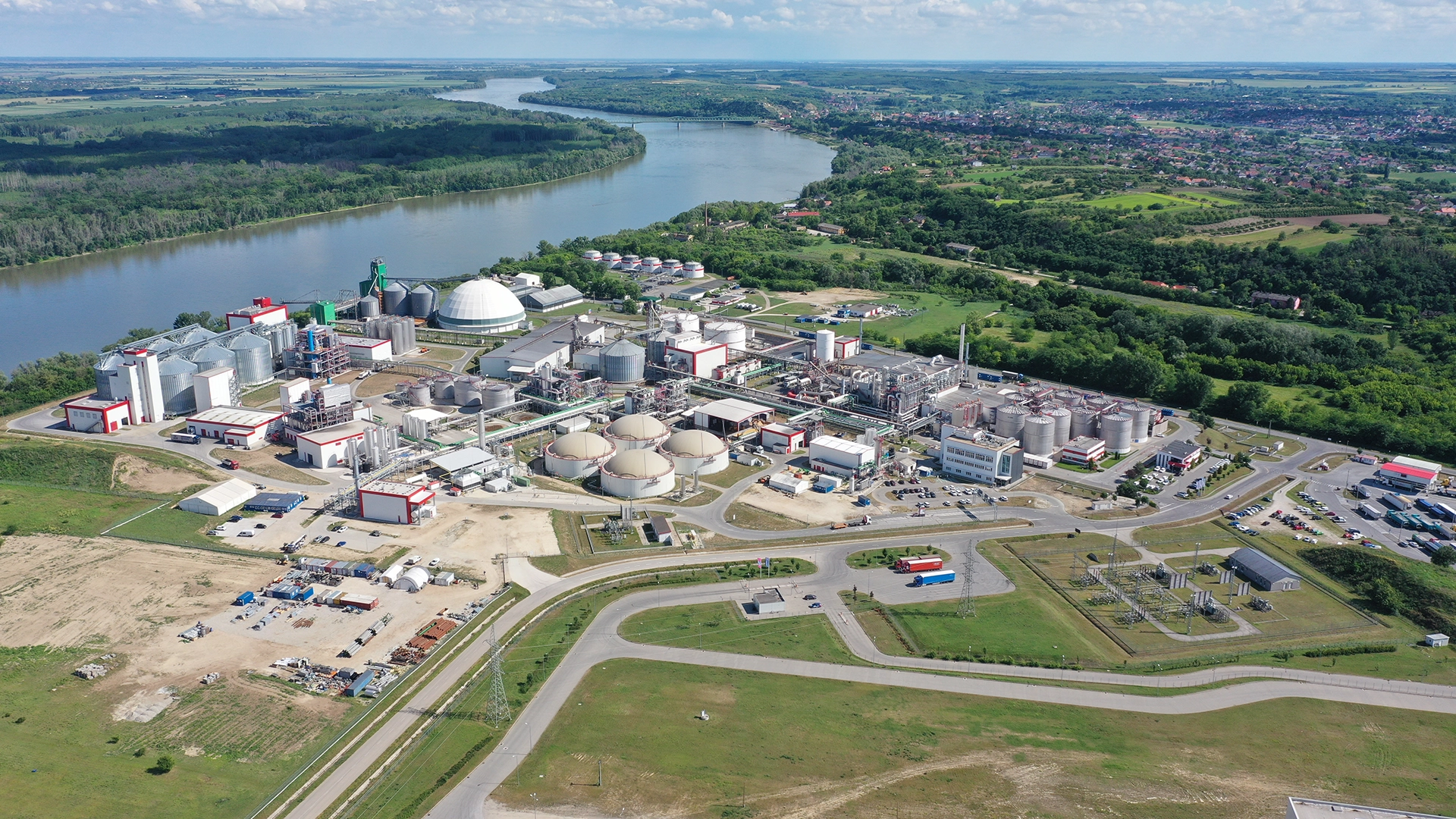Milestones that shaped us
2009
Irish entrepreneur Mark Turley, with a background in several successful ventures, turns his attention to renewable energy and agriculture. Seeing Hungary’s potential, he assembles a team and selects Dunaföldvár, ideally located near corn-growing regions, for what would become a transformative greenfield investment.

2010
Construction begins on an ethanol plant in Dunaföldvár, Tolna County, under the name Pannonia Ethanol. Modelled closely on state-of-the-art American facilities and powered by US technology, the project creates a strong, lasting partnership with Hungarian farmers, strengthening local agricultural supply chains.
.png)
2012
Built ahead of schedule and within budget, the facility launches with 80 employees and produces 200 million litres of bioethanol and 150,000 tonnes of high-protein animal feed in its first year. It also begins producing DDGS, a high-protein feed product, reshaping the Hungarian feed industry and giving a competitive edge to regional livestock farmers.

2013-2015
The company introduces distillers’ corn oil, a high-value feed ingredient, as a new product line as well as its first in-house technology breakthrough. Ethanol production capacity more than doubles, reaching 450 million litres annually. The company decides to expand the plant and invest in new technologies.

2016-2018
Pannonia Ethanol rebrands to Pannonia Bio, signifying its evolution into a biorefinery and commitment to sustainability. The company invests heavily in innovation, launching several pilot plants and expanding its R&D team. This, together with increased capacity and a broader product portfolio, strengthens resilience and future growth prospects.

2019
Pannonia Bio rolls out fibre separation technology, paving the way for later advancements like biogas production. The R&D team expands to 50 members, boosting innovation capacity and cementing the company’s position as the largest ethanol production facility outside the US by the end of the year.

2020
Pannonia Bio reduces its natural gas consumption by 50% through the implementation of the award-winning Mechanical Vapor Recompression (MVR) technology and the launch of its biogas facility. The company also begins producing Pannonia Grow, an organic fertiliser that enhances soil health and supports sustainable agriculture.

2021
Construction begins on a cutting-edge barley processing unit, ranking among the world’s ten largest facilities of its kind. This new addition increases Pannonia Bio’s capacity to process barley into sustainable, high-value products, reinforcing its role as a leader in advanced biorefining. The site’s total area expands to 50.3 hectares.

2022
New biomethane, single cell protein and corn protein concentrate plants expand Pannonia Bio’s capabilities in biorefining. A high-purity distillers’ corn oil plant is also commissioned, delivering 15,000 tonnes of feed-grade oil annually. The company produces over 500 million litres of bioethanol, mitigating 1 billion kilograms of CO2 emissions.

2023
A soluble corn fibre plant, part of the fibre platform, is commissioned to produce high-quality dietary fibres for health and nutrition products. In addition, a corn protein isolate plant is launched to introduce Pannonia Bio’s fifth protein platform product, further advancing our capacity for alternative protein solutions.

2024
Pannonia Bio solidifies its position as a cornerstone of Europe’s biorefining landscape, producing over 550 million litres of bioethanol annually – a threefold increase since 2012. The facility processes 1.2 million tonnes of grain and employs 377 people, continuing its significant contributions to sustainability and Hungary’s economy.


















